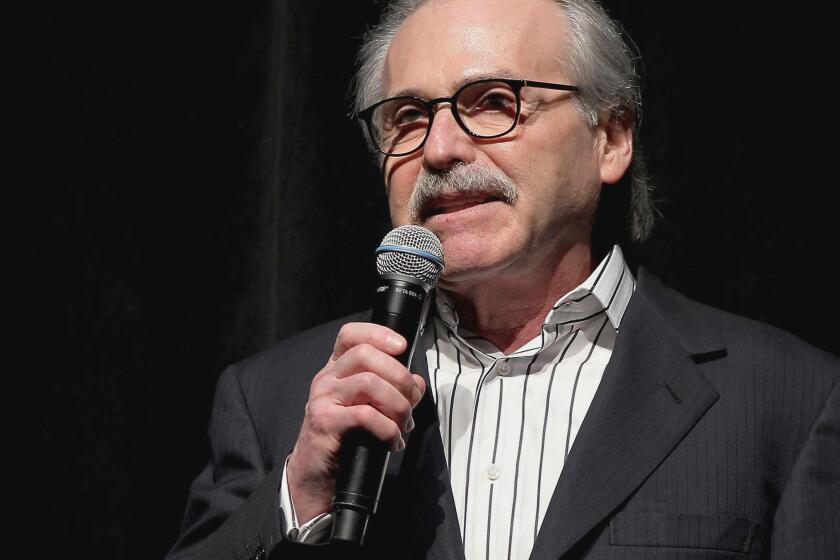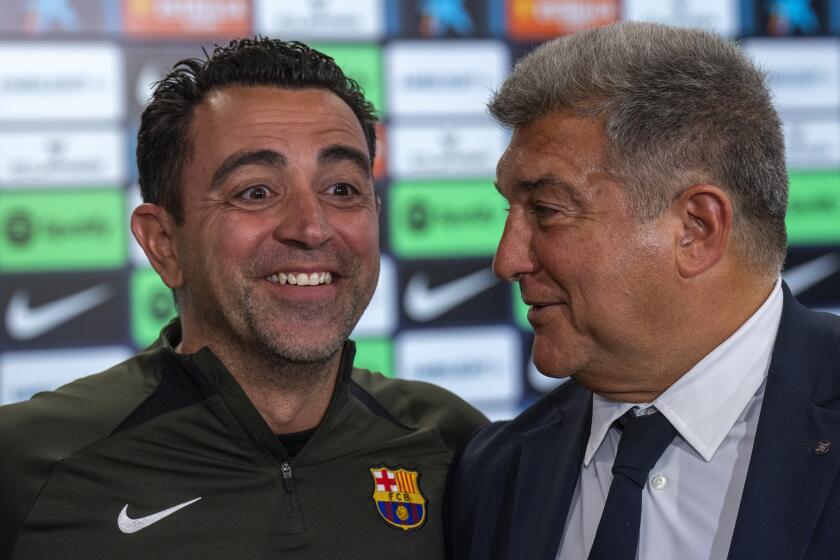Guaido says Maduro’s gov’t showing weakness, Caracas has more power cuts
The head of Venezuela’s opposition-controlled Parliament, Juan Guaido, who is recognized as the country’s legitimate interim president by more than 50 countries, said Monday that the weekend announcement of a restructuring of the Nicolas Maduro government shows “great weakness” and insisted that “the chain of command is broken.”
“There’s no cabinet, there’s a usurpation of duties ... What I see is a very weak regime, a regime that has no answers, a regime that doesn’t govern but rather sings of victory for having one more day during which it usurped duties,” Guaido told reporters.
Maduro’s vice president, Delcy Rodriguez, on Sunday announced via Twitter that the elected president had asked all the members of his Cabinet to submit resignation letters with an eye toward thoroughly restructuring the government to “armor the homeland” against any “threat.”
From the parliamentary headquarters, where he held a meeting with workers and the opposition Free Venezuela Broad Front, Guaido on Monday expressed doubts about the truthfulness of the vice president’s announcement.
“I don’t know if Maduro backs that or not ... or if they’re playing a power game among themselves,” he said, adding that “many have already left and are not here and therefore want to replace something or other.”
The Maduro government has not yet announced who will hold the portfolios in the new Cabinet.
Venezuela is going through a serious political crisis that entered a new phase in January when Maduro was inaugurated for a second six-year term after winning elections the previous May that were widely viewed - by the domestic opposition and by countries and institutions abroad - as being illegitimate because key opposition figures were banned from running, among other things.
In response to Maduro’s inauguration, Guaido proclaimed himself interim president claiming that the protege of - and successor to - the late Hugo Chavez had usurped the presidency by winning a fraudulent election.
Guaido subsequently received the support of more than 50 countries, including the United States, which has been pressuring Maduro to step down, most of the nations in Latin America and about 20 countries in Europe.
Amid the governability crisis, Guaido has been consistent in calling for Venezuelan officials to refuse to recognize Maduro as president.
In response, Maduro has regularly charged that the opposition is mounting a coup d’etat under the direction of the US.
Ten days ago, Venezuela experienced a massive power outage affecting much of the country that lasted for five days and which the Maduro regime attributed - without providing any evidence - to a US cyber-attack.
However, the opposition has pointed to the government’s ineptitude and poor administration of resources as the true causes of the blackout, which is blamed for a number of deaths.
Parts of the Venezuelan capital experienced power cuts Monday amid protests by residents of some neighborhoods who say they are still waiting for electricity and water service to be restored following the nationwide blackout of March 7-12.
Also affected were the towns of Guarenas and Guatire, near Caracas.
State-run utility Corpoelec said on Twitter that substations in Guarenas and Guatire were “affected by power fluctuations” on the lines carrying electricity to the capital area from Carupano, in the northeastern state of Sucre.
Efforts were under way to address the problem, Corpoelec said.
The new outages occurred as residents of the east Caracas neighborhood of Palo Verde said that they have been without power and running water for nearly two weeks.
The former mayor of the Sucre district, which includes Palo Verde, spoke out about the situation on Twitter.
“People of Palo Verde ... have not had LIGHT or WATER for 12 consecutive days. They are 200 families affected since the day of the mega-blackout,” Carlos Ocariz wrote.
Protesters in Palo Verde told EFE that the extended outage had caused food to spoil and damaged household appliances.
Oil-rich Venezuela is suffering from a combination of hyperinflation, shortages and breakdowns of public services such as water, gas, electricity and transportation.
Meanwhile, in Washington, representatives dispatched by Guaido on Monday took control of the Venezuelan consulate in New York and two buildings of the Venezuelan Defense Ministry in Washington in a gesture designed to increase pressure on Maduro.
At a press conference in Washington, Carlos Vecchio, Guaido’s “ambassador” in the US, said that the “recovery” of the three facilities was implemented to “recover and protect the assets of the Venezuelan people to prevent the usurping Maduro regime from continuing to steal and destroy them, as it has done for the last 20 years.”
Vecchio was accompanied by about 20 journalists and photographers to the old military attache’s office, now in a state of severe disrepair, where he pointed out the “poor condition” of the roof, the filth, disconnected piping and other connections and the peeling paint on the walls.
At a press conference in Bogota, Colombia, opposition lawmaker Jose Manuel Olivares said that at least 26 people died in Venezuelan hospitals during the 72 hours of the power outage during the week of March 7-11.
“It’s important for you to understand that during that period an average of 55 percent of our country’s hospitals were without electricity,” Olivares, who is also a physician, said at a press conference.
He said that because some of the victims’ lives depended on machines - such as dialysis machines - due to the power outage those machines could not be operated and so the patients died.
But even in hospitals where there was power, several patients died anyway.
Olivares also said that the opposition has an alternative plan to bring humanitarian aid that is being stockpiled across the border in Cucuta, Colombia, into Venezuela
“The plans exist, the alternatives exist. We’re not going to divulge them too early but rather at the appropriate time so that the world can see how the aid comes in,” he said at the press conference.
In Florida, lawmakers and members of state’s Democratic Hispanic Caucus demanded that the Donald Trump administration extend Temporary Protected Status to Venezuelans because of the “humanitarian and economic crisis” in that country and called for “intensifying the sanctions” on the Maduro government.
The group of Democratic state senators and congressmen unequivocally condemned Maduro’s “dictatorial regime,” as Sen. Victor Torres said, and expressed their firm support for Guaido as the country’s interim leader.
Torres said at the state capitol in Tallahassee that TPS should be authorized for the “desperate Venezuelans” who are in US territory.
Sen. Janet Cruz denounced as “hypocrisy” the fact that some are denouncing the “brutal repression” of the Venezuelan regime while, at the same time, “deporting Venezuelans” from the US back to their homeland, and she called on the Trump administration to give Venezuelans TPS immediately, calling this a non-partisan matter.



